This article was co-authored by Noel Hunter, Psy.D. Dr. Noel Hunter is a Clinical Psychologist based in New York City. She is the director and founder of MindClear Integrative Psychotherapy. She specializes in using a trauma-informed, humanistic approach for treating and advocating for people diagnosed with mental disorders. Dr. Hunter holds a BA in Psychology from the University of South Florida, an MA in Psychology from New York University, and a doctorate in Psychology (Psy.D) from Long Island University. She has been featured in National Geographic, BBC News, CNN, TalkSpace, and Parents magazine. She is also the author of the book Trauma and Madness in Mental Health Services.
There are 10 references cited in this article, which can be found at the bottom of the page.
This article has been viewed 53,061 times.
Dissociative Identity Disorder (DID) is a serious and complicated condition characterized by the development of two or more separate identities, which have their own distinct personalities and seem to take turns controlling a single person. Until recently, the condition was known as “Multiple Personality Disorder.” Treating DID is quite challenging, and living with it can be very difficult, but also quite uncommon.[1] Start with Step 1 to implement some techniques to help you live a more normal life.
Steps
Understanding Your Condition
-
1Recognize the nature of your illness. You are a single, whole individual with different identities. Each separate identity (or “alter”) is your own, even if you feel that you have no control over them. Recognizing this basic fact will give you a sense of personal identity and help you learn how to manage your condition.
-
2Identify the cause. DID is most common in women,[2] and it is almost always connected to childhood trauma, often in the form of brutal and sustained abuse.[3] As painful and difficult as the process might be, understanding the cause of your dissociation may help you heal.Advertisement
-
3Accept that your alters are real, and are there to help you. Others may tell you that your alters don’t exist, that you created them yourself. This is not true, as you did nothing on purpose to create these alternates or your disorder, otherwise, they wouldn't be considered involved in mental health issues. Instead, they are referred as your alter egos, i.e. you made up your own "personalities". Alter egos and DID are both very different. Alters are not independent people. However, if you are living with DID, these alters feel very real. For the time being, it may be best to acknowledge their apparent reality and learn to cope with their existence.
-
4Expect to experience amnesia. If you have DID, you may have two kinds of amnesia. First, you may have forgotten or blocked out painful or traumatic life experiences; recall that many people with Dissociative Identity Disorder had such experiences as children. Second, you may develop amnesia and a sense of “lost time” whenever one of your alters takes over your consciousness.[4]
-
5Know that you will experience fugue states. Because one of your alters may take over at any given time, you may find yourself away from home, unsure of where you are or how you got there. This is called a “dissociative fugue.”[5]
-
6Understand that depression is common in people with DID. If you have Dissociative Identity Disorder, you may also experience symptoms of depression: disturbed sleep and appetite, persistent sadness, and, in some cases, suicidal thoughts.[6]
-
7Be aware that anxiety is also common in people with DID. If you have Dissociative Identity Disorder, you may also experience symptoms of anxiety. You may notice that you feel very worried or panicked, sometimes without understanding why.[7]
-
8Look for other mental health symptoms. In addition to amnesia, fugue states, depression, and anxiety, you may notice other psychological symptoms: mood swings, for example, and a sense of numbness or detachment from reality.[8]
-
9Watch for auditory hallucinations. People with DID sometimes hear voices, which may cry, comment, criticize, or threaten. You may or may not understand, at first, that these voices are coming from inside your head.[9]
Seeking Professional Help
-
1Find an experienced therapist. You need a therapist who can succeed in eliciting the right information from you and your alters, and you need someone who will listen patiently and tackle your long-term treatment. In addition to talk therapy, treatment for DID may include hypnotherapy, psychotherapy, art therapy, and movement therapy. Look for a professional with experience treating DID in one or more of these ways.
-
2Be persistent. On average, it takes about seven years just to get a diagnosis of Dissociative Identity Disorder.[10] This is both because many clinicians do not fully understand DID and because the dissociative symptoms are not always immediately obvious, while the more common symptoms – depression, anxiety, and the like – mask the root problem. Once you get a diagnosis, you will also have to be persistent about pursuing treatment. If your therapist does not seem to understand or listen to you, find a new one. If one treatment does not seem to work, try something else.
-
3Try to comply with your therapist’s instructions. The more you adhere to your therapy, the easier it will be for you to manage your alters and lead a better, more normal life. Remember that therapy works slowly, but it can bring significant, lasting changes. Over time, a good therapist can help you understand your condition, resolve conflicts, and, ultimately, integrate your multiple identities into a single one.
-
4Take prescribed medications. In addition to therapy, you may need to treat some of your symptoms – depression, anxiety, mood swings, and sleep problems, for example – with medication. These drugs will not cure your DID, but they are sometimes used as “shock absorbers” to help manage painful and debilitating symptoms so that long-term therapy for the dissociation can progress.
Coping with Dissociative Identity Disorder in Your Daily Life
-
1Plan for dissociation. Remember that your alters may take over at any time. Depending on the specific circumstances of your case, one or more of these alters may be children or may be otherwise unaware of where they should go. Be prepared. Keep a paper with your name, address, and telephone number, along with the contact information for your therapist and at least one good friend, at your home, at your workplace, and in your car. Keep important records in a single place at home, and tell loved ones where that place is.
- In addition, it may help you to place cue cards in your card and room with important information, including your daily schedule.
-
2Take preventive measures. One or more of your alters may prove untrustworthy. This personality may, for example, spend too much money, going on shopping sprees and purchasing items you will not use. In this case, refrain from carrying credit cards or large amounts of cash. If one of your alters does something else untrustworthy, take similar steps to minimize the potential damage.
- Keep a journal with you and jot down notes to remind you of the things you need to do. That can help you if you have memory lapses or trouble keeping track of things.[11]
-
3Join a support group. If a support group for people with dissociative conditions exists in your area, consider joining. Such groups can provide valuable perspective and offer you a number of coping mechanisms and survival skills.
- If there's not an in-person support group near you, check out online support groups.[12]
-
4Build a personal support network. Aside from your therapist and your support group, it may help to have some close friends and family members who understand your situation and are willing to help when necessary. They can help keep track of your medications and treatments and provide much-needed emotional support. Unconditional love and support will boost your self-esteem and strengthen your resolve to stay committed to treatment.
-
5Read success stories. It can be inspiring to read books about people who have successfully managed DID and worked to lead normal, fully functional lives. Your therapist may have recommendations for you.
-
6Create a sanctuary. When painful memories arise or you find yourself feeling very upset, it can help to have a safe, calming space. This can be a very small space, but it should feel safe and inviting. Some ideas include:
- making an album or collection of good memories, which you can see and review often.
- decorating with calming and peaceful images.
- including positive messages, like “I feel safe here,” and “I can do this.”
-
7Avoid stress. Stress seems to be the single biggest factor in personality switches. You try to seek refuge by unconsciously suppressing and switching to avoid stressful situations. Minimize this problem by avoiding arguments, leaving places where conflicts are likely to arise, keeping the company of people who understand and support you, and busying yourself with calming activities like reading, gardening, or watching television.
-
8Identify alarming situations or symptoms. Over time and with treatment, you may learn to recognize situations and symptoms that are likely to trigger one of your alters taking over. Pay attention and try to resolve these situations before that happens. In addition, write them down whenever possible, so that you can be proactive about resolving them in the future. Some common triggers for people with DID include:
- engaging in a conflict
- having flashbacks of bad memories
- insomnia and somatic complaints
- urges to harm yourself
- mood swings
- feelings of numbness, detachment, or “losing your mind”
- auditory hallucinations, perhaps with the voices commenting or arguing
-
9Take steps to feel happy and calm. Take pleasure in doing small yet satisfying tasks for yourself, and try to help others when you are able. Practice your faith, if you have one, and try meditation and yoga. These steps will help you release stress and gain a sense of inner strength.
-
10Stay away from drugs and alcohol. Consumption of any drugs aside from those prescribed for your condition may make your symptoms worse.
Handling a Job with Dissociative Identity Disorder
-
1Choose the right job. Every individual is different, but if you have DID, your condition will certainly affect your ability to work. What kind of job is right for you? It depends on how cooperative and collaborative your alters are. Talk to your therapist about which kinds of work might be best in your circumstances, but remember that it’s very important to avoid significant stress. Try not to take on a job that will have you constantly tense and worried.
- Consider, especially, what your responsibilities will be. You don’t want a child alter to emerge during a serious discussion or important meeting, and you don’t want to surprise clients or customers with inexplicably changing ideas, perceptions, attitudes, and behaviors.
-
2Have reasonable expectations. You can try to control and set rules for your alters, but they may not cooperate. They may make mistakes, confuse your coworkers, leave your workplace, or even quit your job. Expecting to manage all of these possibilities will only add to your stress level, so accept the fact that you may not be able to keep a particular job.
-
3Consider making coworkers aware of your condition. It is your decision whether or not to share your diagnosis with coworkers. If your DID is managed well and does not typically interfere in your work life, you may not have to. If, however, your boss or coworkers become confused, annoyed, or dissatisfied with your performance for reasons related to your condition, it may be helpful to explain. Otherwise, these people may struggle to know the “real you” and find it perplexing that your thoughts and ideas seem to shift for no reason.
-
4Manage work-related stress. Even a relatively low-pressure job will sometimes cause you stress. Take care not to let this stress get too intense. Just as you do in your life outside the workplace, try to avoid conflicts, walk away from arguments, and practice relaxation techniques.
-
5Know the law. Federal law safeguards the employment interests of people who are disabled, and this includes people with Dissociative Identity Disorder. If you can reasonably perform the tasks required of your job, then the law is on your side.
Expert Q&A
-
QuestionCan you live a normal life with dissociative identity disorder?
 Noel Hunter, Psy.DDr. Noel Hunter is a Clinical Psychologist based in New York City. She is the director and founder of MindClear Integrative Psychotherapy. She specializes in using a trauma-informed, humanistic approach for treating and advocating for people diagnosed with mental disorders. Dr. Hunter holds a BA in Psychology from the University of South Florida, an MA in Psychology from New York University, and a doctorate in Psychology (Psy.D) from Long Island University. She has been featured in National Geographic, BBC News, CNN, TalkSpace, and Parents magazine. She is also the author of the book Trauma and Madness in Mental Health Services.
Noel Hunter, Psy.DDr. Noel Hunter is a Clinical Psychologist based in New York City. She is the director and founder of MindClear Integrative Psychotherapy. She specializes in using a trauma-informed, humanistic approach for treating and advocating for people diagnosed with mental disorders. Dr. Hunter holds a BA in Psychology from the University of South Florida, an MA in Psychology from New York University, and a doctorate in Psychology (Psy.D) from Long Island University. She has been featured in National Geographic, BBC News, CNN, TalkSpace, and Parents magazine. She is also the author of the book Trauma and Madness in Mental Health Services.
Clinical Psychologist It's hard to make sweeping generalizations because everybody's experience is so different. However, it helps to have as many healthy habits as you can. That means eating nutritiously, exercising, and keeping stability in your routine.
It's hard to make sweeping generalizations because everybody's experience is so different. However, it helps to have as many healthy habits as you can. That means eating nutritiously, exercising, and keeping stability in your routine. -
QuestionHow do you deal with memory loss due to dissociative identity disorder?
 Noel Hunter, Psy.DDr. Noel Hunter is a Clinical Psychologist based in New York City. She is the director and founder of MindClear Integrative Psychotherapy. She specializes in using a trauma-informed, humanistic approach for treating and advocating for people diagnosed with mental disorders. Dr. Hunter holds a BA in Psychology from the University of South Florida, an MA in Psychology from New York University, and a doctorate in Psychology (Psy.D) from Long Island University. She has been featured in National Geographic, BBC News, CNN, TalkSpace, and Parents magazine. She is also the author of the book Trauma and Madness in Mental Health Services.
Noel Hunter, Psy.DDr. Noel Hunter is a Clinical Psychologist based in New York City. She is the director and founder of MindClear Integrative Psychotherapy. She specializes in using a trauma-informed, humanistic approach for treating and advocating for people diagnosed with mental disorders. Dr. Hunter holds a BA in Psychology from the University of South Florida, an MA in Psychology from New York University, and a doctorate in Psychology (Psy.D) from Long Island University. She has been featured in National Geographic, BBC News, CNN, TalkSpace, and Parents magazine. She is also the author of the book Trauma and Madness in Mental Health Services.
Clinical Psychologist Keep a lot of notes, especially if you're having memory lapses or difficulty keeping yourself organized. Carry a journal with you at all times and jot down what's been going on and what you need to do.
Keep a lot of notes, especially if you're having memory lapses or difficulty keeping yourself organized. Carry a journal with you at all times and jot down what's been going on and what you need to do. -
QuestionWhere can I get help for dissociative identity disorder?
 Noel Hunter, Psy.DDr. Noel Hunter is a Clinical Psychologist based in New York City. She is the director and founder of MindClear Integrative Psychotherapy. She specializes in using a trauma-informed, humanistic approach for treating and advocating for people diagnosed with mental disorders. Dr. Hunter holds a BA in Psychology from the University of South Florida, an MA in Psychology from New York University, and a doctorate in Psychology (Psy.D) from Long Island University. She has been featured in National Geographic, BBC News, CNN, TalkSpace, and Parents magazine. She is also the author of the book Trauma and Madness in Mental Health Services.
Noel Hunter, Psy.DDr. Noel Hunter is a Clinical Psychologist based in New York City. She is the director and founder of MindClear Integrative Psychotherapy. She specializes in using a trauma-informed, humanistic approach for treating and advocating for people diagnosed with mental disorders. Dr. Hunter holds a BA in Psychology from the University of South Florida, an MA in Psychology from New York University, and a doctorate in Psychology (Psy.D) from Long Island University. She has been featured in National Geographic, BBC News, CNN, TalkSpace, and Parents magazine. She is also the author of the book Trauma and Madness in Mental Health Services.
Clinical Psychologist Reach out to any support network that you have, even if that is only a mental health professional. Also, join support groups, whether it be online or in person—peer support can be really helpful in that regard.
Reach out to any support network that you have, even if that is only a mental health professional. Also, join support groups, whether it be online or in person—peer support can be really helpful in that regard.
References
- ↑ https://my.clevelandclinic.org/health/diseases/9792-dissociative-identity-disorder-multiple-personality-disorder#:~:text=from%20Cleveland%20Clinic-,Dissociative%20identity%20disorder%20(DID)%20is%20a%20mental%20health%20condition.,usually%20caused%20by%20past%20trauma.
- ↑ https://www.nami.org/About-Mental-Illness/Mental-Health-Conditions/Dissociative-Disorders
- ↑ https://aamft.org/Consumer_Updates/Dissociative_Identity_Disorder.aspx
- ↑ https://www.ncbi.nlm.nih.gov/books/NBK568768/
- ↑ https://www.mind.org.uk/information-support/types-of-mental-health-problems/dissociation-and-dissociative-disorders/dissociative-disorders/
- ↑ https://www.msdmanuals.com/home/mental-health-disorders/dissociative-disorders/dissociative-identity-disorder
- ↑ https://www.rethink.org/advice-and-information/about-mental-illness/learn-more-about-conditions/dissociation-and-dissociative-identity-disorder-did/
- ↑ https://www.nami.org/About-Mental-Illness/Mental-Health-Conditions/Dissociative-Disorders
- ↑ https://psychiatry.org/patients-families/dissociative-disorders/expert-q-and-a
- ↑ https://pubmed.ncbi.nlm.nih.gov/8437140/
- ↑ Noel Hunter, Psy.D. Clinical Psychologist. Expert Interview. 18 December 2020.
- ↑ Noel Hunter, Psy.D. Clinical Psychologist. Expert Interview. 18 December 2020.
- ↑ Noel Hunter, Psy.D. Clinical Psychologist. Expert Interview. 18 December 2020.
- ↑ Noel Hunter, Psy.D. Clinical Psychologist. Expert Interview. 18 December 2020.
- ↑ Noel Hunter, Psy.D. Clinical Psychologist. Expert Interview. 18 December 2020.
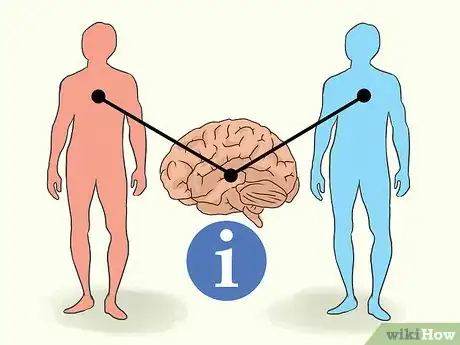






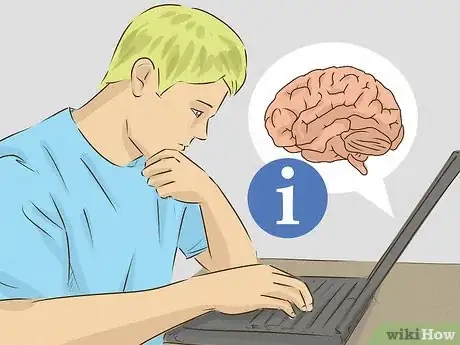
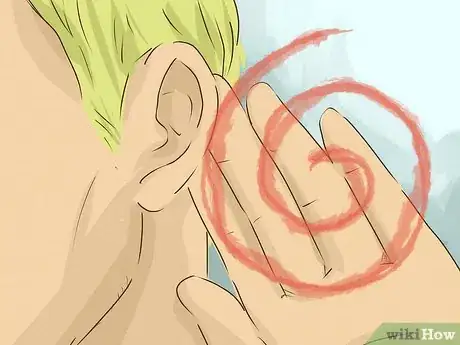
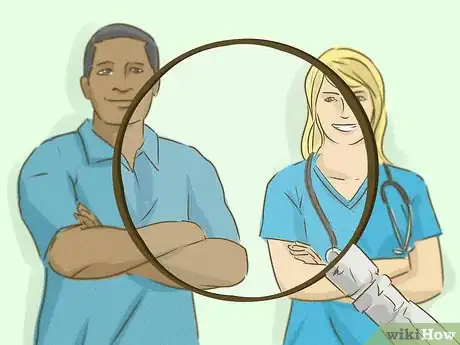


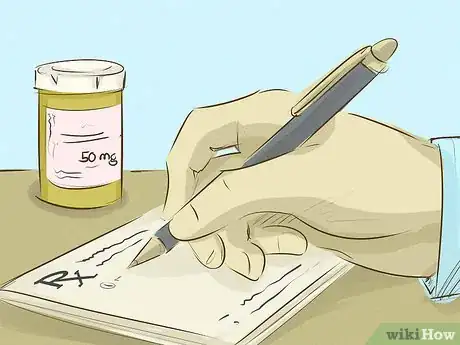
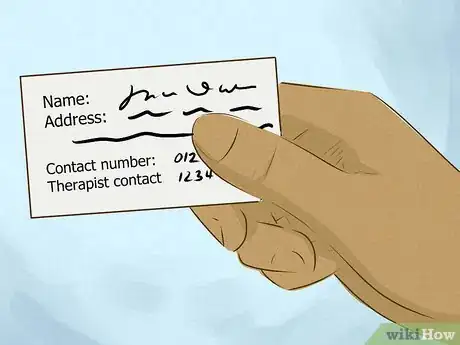









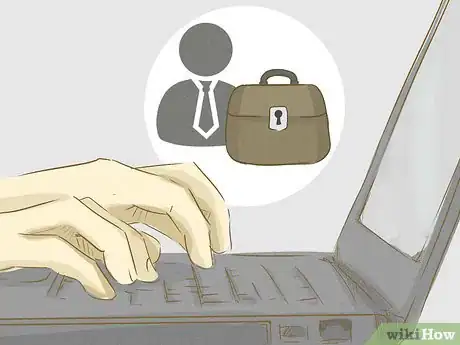



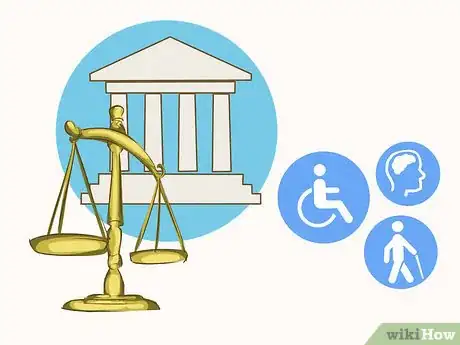







-Step-17-Version-2.webp)



















































Medical Disclaimer
The content of this article is not intended to be a substitute for professional medical advice, examination, diagnosis, or treatment. You should always contact your doctor or other qualified healthcare professional before starting, changing, or stopping any kind of health treatment.
Read More...